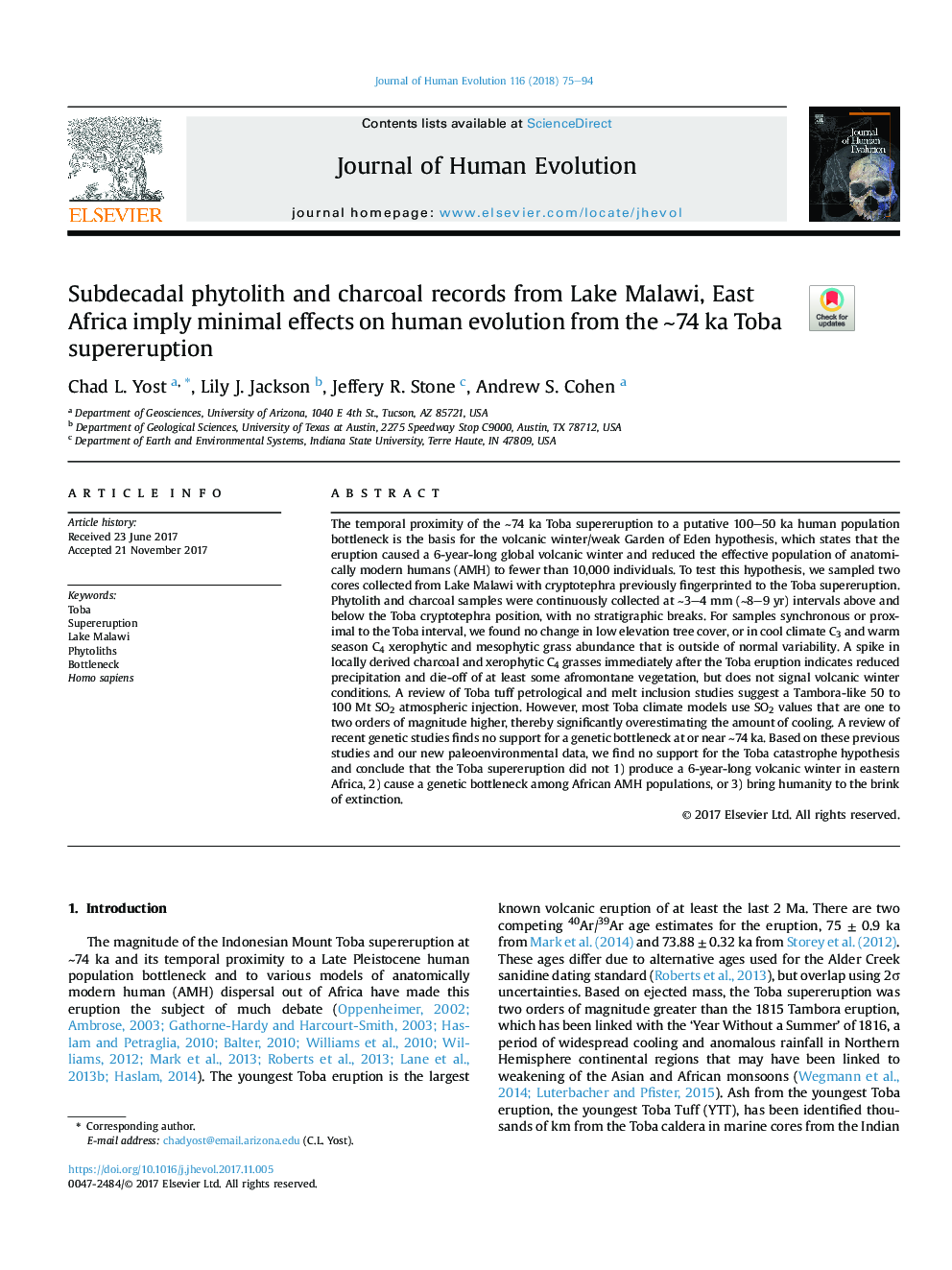| کد مقاله | کد نشریه | سال انتشار | مقاله انگلیسی | نسخه تمام متن |
|---|---|---|---|---|
| 8887303 | 1628133 | 2018 | 20 صفحه PDF | دانلود رایگان |
عنوان انگلیسی مقاله ISI
Subdecadal phytolith and charcoal records from Lake Malawi, East Africa imply minimal effects on human evolution from the â¼74Â ka Toba supereruption
دانلود مقاله + سفارش ترجمه
دانلود مقاله ISI انگلیسی
رایگان برای ایرانیان
کلمات کلیدی
موضوعات مرتبط
علوم زیستی و بیوفناوری
علوم کشاورزی و بیولوژیک
بوم شناسی، تکامل، رفتار و سامانه شناسی
پیش نمایش صفحه اول مقاله

چکیده انگلیسی
The temporal proximity of the â¼74Â ka Toba supereruption to a putative 100-50Â ka human population bottleneck is the basis for the volcanic winter/weak Garden of Eden hypothesis, which states that the eruption caused a 6-year-long global volcanic winter and reduced the effective population of anatomically modern humans (AMH) to fewer than 10,000 individuals. To test this hypothesis, we sampled two cores collected from Lake Malawi with cryptotephra previously fingerprinted to the Toba supereruption. Phytolith and charcoal samples were continuously collected at â¼3-4Â mm (â¼8-9Â yr) intervals above and below the Toba cryptotephra position, with no stratigraphic breaks. For samples synchronous or proximal to the Toba interval, we found no change in low elevation tree cover, or in cool climate C3 and warm season C4 xerophytic and mesophytic grass abundance that is outside of normal variability. A spike in locally derived charcoal and xerophytic C4 grasses immediately after the Toba eruption indicates reduced precipitation and die-off of at least some afromontane vegetation, but does not signal volcanic winter conditions. A review of Toba tuff petrological and melt inclusion studies suggest a Tambora-like 50 to 100Â Mt SO2 atmospheric injection. However, most Toba climate models use SO2 values that are one to two orders of magnitude higher, thereby significantly overestimating the amount of cooling. A review of recent genetic studies finds no support for a genetic bottleneck at or near â¼74Â ka. Based on these previous studies and our new paleoenvironmental data, we find no support for the Toba catastrophe hypothesis and conclude that the Toba supereruption did not 1) produce a 6-year-long volcanic winter in eastern Africa, 2) cause a genetic bottleneck among African AMH populations, or 3) bring humanity to the brink of extinction.
ناشر
Database: Elsevier - ScienceDirect (ساینس دایرکت)
Journal: Journal of Human Evolution - Volume 116, March 2018, Pages 75-94
Journal: Journal of Human Evolution - Volume 116, March 2018, Pages 75-94
نویسندگان
Chad L. Yost, Lily J. Jackson, Jeffery R. Stone, Andrew S. Cohen,